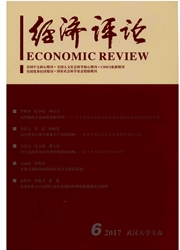

 中文摘要:
中文摘要:
商品住房项目配建保障性住房单元是近年来我国推广的一种保障性住房建设模式,本文综合理论和实证分析研究该模式下各方成本分担问题。理论分析显示,一方面开发商存在强烈的提高同项目商品住房价格以弥补利润损失的动机;另一方面,在现行预售价格审批制度下,政府也倾向于以提高批准的预售价格作为对开发商的补贴手段。基于北京市2013年和2014年数据开展的实证研究也发现,同等条件下配建保障性住房的新建商品住房项目价格显著较高,且这种效应在配建大规模和租赁型保障性住房、开发商为非国有企业、项目区位条件相对较差时尤其明显。进一步的福利分析显示,借助上述方式,开发商实际上将配建保障性住房的成本完全转嫁给商品住房购房人,甚至借此获利。基于这一研究发现,本文提出了相应政策建议。
 英文摘要:
英文摘要:
In recent years,integrating affordable housing units into commodity housing projects has been extensively applied.This paper discusses the cost sharing mechanism under this inclusionary construction mode both in theoretical and empirical perspectives.According to the theoretical analysis,the developers have strong motivations and bargaining powers to get implicit subsidies by increasing pre-sale price of commercial units under the inadequate repurchase price and "pre-sale price approval"system.Using the micro data of Beijing in 2013 and 2014,the empirical analysis also finds a significant higher price of the commercial housing in the inclusionary projects.This higher price is significant even when the commercial units are built with larger scale of rental affordable housing,or developed by non-state-owned enterprises and located in bad area of the city.The welfare analysis indicates that developers actually get extra profits after transmitting the cost of affordable housing.Related political recommendations are further discussed.
 同期刊论文项目
同期刊论文项目
 同项目期刊论文
同项目期刊论文
 期刊信息
期刊信息
